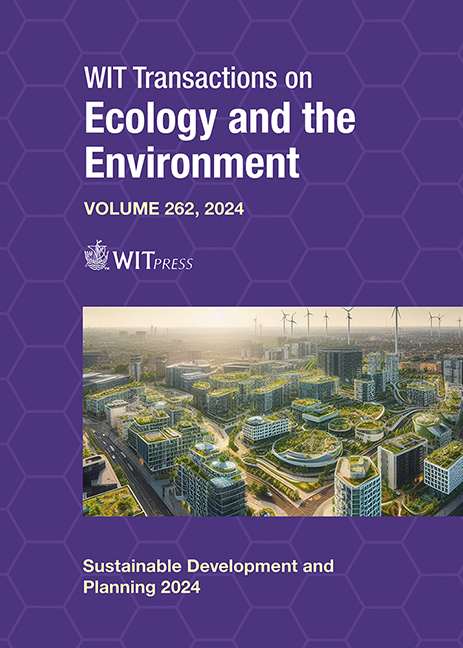Sustainable Development and Planning VII
Edited By: O. Ozcevik, Istanbul Technical University, Turkey, C.A. Brebbia, Wessex Institute of Technology, UK and S.M. Sener, Istanbul Technical University, Turkey
Price
£590.00 (free shipping)
ISBN
978-1-84564-924-1
eISBN
978-1-84564-925-8
Pages
1146
Transaction Series
WIT Transactions on Ecology and the Environment
Transaction Volume
193
Published
2015
Format
Hardback
This book contains the proceedings of the seventh in a series of biennial conferences on the topic of sustainable regional development that began in 2003. Organised by the Wessex Institute, the conference series provides a common forum for all scientists specialising in the range of subjects included within sustainable development and planning.
In order to ensure that planning and development can meet our present needs without compromising future generations, planners, environmentalists, architects, engineers, policy makers, and economists must work together The use of modern technologies in planning gives us new potential to monitor and prevent environmental degradation. In recent years, in many countries an increase in spatial problems has led to planning crises. Planning problems are often associated with uneven development, deterioration of the quality of urban life, and destruction of the environment. The increasing urbanisation of the world, coupled with the global issues of environmental pollution, resource shortage, and economic restructuring, demand that we ensure a decent quality of life for our cities. Other environments, such as rural areas, forests, coastal regions, and mountains, face their own problems that urgently require solutions in order to avoid irreversible damage. Effective strategies for management should consider planning and regional development, two closely related disciplines, and emphasise the demand to handle these matters in an integrated way.
The papers in the book cover such topics as: City Planning; Regional Planning; Rural Developments; Sustainability and the Built Environment; Sustainability Indicators; Policies and Planning; Environmental Planning and Management; Energy Resources; Cultural Heritage; Quality of Life; Community Planning and Resilience; Sustainable Solutions in Emerging Countries; Sustainable Tourism; Learning from Nature.








